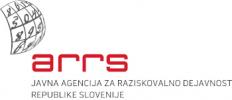Migration control in the Slovenian area from the times of Austria-Hungary to independent Slovenia
-
Original Title
Nadzor nad migracijami na Slovenskem od Avstro-Ogrske do samostojne Slovenije
Project Team
dr. Aleksander Panjek, dr. Katja Hrobat Virloget-
ARIS Project ID
J6-8250
-
Duration
1 May 2017–30 April 2020 -
Link to SICRIS
12524 -
Lead Partner
ZRC SAZU
-
Project Leader
Aleksej Kalc, PhD
-
Financial Source
Javna agencija za raziskovalno dejavnost Republike Slovenije

Partners
University of Primorska, The Faculty of Humanities
Control of migration and migrants is a relevant aspect of migration history and one to which international historiography, under the influence of current migration processes and the challenges associated with them, is devoting increasing attention. In Slovenia, this issue has not yet been given attention and treatment in line with the latest studies and concepts. For historical reasons, which include its belonging to various state contexts and migration regimes, the "Slovenian case" has many specific features, opening up some original questions.
The research will deal with selected themes or groups of issues relating to migration control in Slovenia and bring them together into a comparative perspective. The issue will be addressed within three historical periods and concerning the different migration regimes and their transitions:
1. The period of liberal attitudes towards migration in the second half of the 19th century until WWI;
2. the period of the establishment of migration regimes under state institutional control between the world wars;
3. the period of socialism after WWII, with sub-periods of a restrictive regime and, from the 1960s, the legalisation of international migration.
Research objectives:
The aim of the research is to study the systems of migration control in the Slovene lands over the course of a lengthy historical period running from the second half of the nineteenth century to the establishment of the independent Republic of Slovenia. The goal is to investigate the characteristics and implementation of the migration regimes and migration policies that in different state contexts and phases of history have regulated the question of emigration to and immigration from other countries and migrations within national borders and shaped attitudes towards migrants. We will analyse theoretical and political basis, instruments, organisational aspects, procedures and practices of control mechanisms for the actualisation or restriction of the right to migrate, the role of competent actors and, in general, methods of managing migrations and related issues and interests of a legal/political, economic, social, ethnic and cultural nature. The emphasis will be on a comparison between individual phases, on elements of continuity and changes in attitudes towards migrations, and on the forms and uses of migration control.
Stage 1 (1st year):
- Definition of the thematic/issue-related research groups, planning of the research tasks, distribution of work (initial phase);
- selection of literature and the listing of primary and secondary sources by research task;
- study of the literature and the primary and secondary sources in line as dictated by the thematic/issue-related groups;
- three operational meetings to check the implementation of the research work and the resolution of problems as they arise (1st, 4th and 9th months);
- one workshop (12th month): presentation of the work done and the findings of the specific research, and a discussion with external experts;
- ongoing coordination meetings (as required);
- preparation of two academic articles for publication;
- the design of online presentation of the project.
Stage 2 (2nd year):
- Continued collection and study of literature and sources by thematic/issue-related group and research task;
- dissemination of partial results of the project at domestic and international academic and specialist conferences;
- three operational meetings to check the implementation of the research work and resolve problems as they arise (sequence as required);
- one workshop (final part of the stage): presentation of work done in the second stage and discussion of the content in cooperation with external specialists;
- ongoing coordination meetings (as required);
- preparation of three academic articles for publication;
- updating of online presentation of the project.
Stage 3 (3rd year):
- Final study of issue-related groups and research questions, and interpretation by period and within a long comparative perspective;
- dissemination of results of the project at domestic and international academic conferences;
- three operational meetings to check the implementation of the research work and resolve problems as they arise (sequence as required);
- one workshop (most probably in the 9th month): presentation of the findings and discussion with external experts;
- ongoing coordination meetings (as required);
- preparation of five academic articles for publication;
- preparation of studies/chapters for an overall presentation of the results of the research in the form of a scientific monograph.
Project results:
- Ten academic papers;
- the preparation of studies/chapters for the presentation of the findings of the research in a scientific monograph;
- the monograph will be issued after acquiring dedicated funds through the tender for ARRS monographs;
- online presentation of the project on the website of the Slovenian Migration Institute;
- dissemination of the results of the project at academic conferences in Slovenia and abroad and via networks for the dissemination of academic literature (Academia.edu, Lulu.com, ResearchGate).